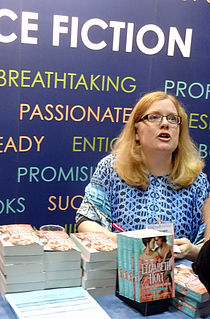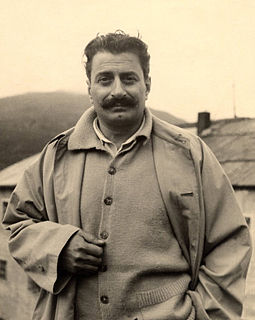A Quote by Lydia M. Child
I was gravely warned by some of my female acquaintances that no woman could expect to be regarded as a lady after she had written a book.
Related Quotes
I had written a book. For various reasons, the publishing industry had decided that my book was going to be 'important.' The novel had taken me 12-and-a-half years to write, and after being with the book for so long, I had no real perspective on the merits or demerits of what I had written. I hoped it was good, but feared that it wasn't.
I felt that there were so many things that could go wrong, in adapting The Hunger Games , and I had this fierce desire to protect this book that she had written. At that time, I read the second book, in manuscript form, and so I saw where she was going with the series. I was able to convince Suzanne [Collins] to trust me with the books.
Maybe the woman who was handed the book [One Thousand Gifts] by a friend the morning before she had an abortion scheduled - and read the book and realized that this pregnancy that she didn't want - perhaps it too could be a gift from God? And then she said showed me the photo of this laughing 5 month old boy.
The techniques are all means of dealing with one simple idea: She wrote it. (That is, the "wrong" person--in this case, female--has created the "right" value--i.e., art.)
Denial of Agency: She didn't write it.
Pollution of Agency: She shouldn't have written it.
Double Standard of Content: Yes, but look what she wrote about.
False Categorizing: She is not really she [an artist] and it is not really it [serious, of the right genre, aesthetically sound, important, etc.] so how could "she" have written "it"?
Or simply: Neither "she" nor "it" exists (simple exclusion).
I had an interview once with some German journalist - some horrible, ugly woman. It was in the early days after the communists - maybe a week after - and she wore a yellow sweater that was kind of see-through. She had huge tits and a huge black bra, and she said to me, "It's impolite; remove your glasses." I said, "Do I ask you to remove your bra?"
Do you think that civilization advances because of things written in books? Not a bit of what is written in books ever got there until after the thought of it happened in someone's mind. Someone first had to collect it from space, or recollect it from its electrical pattern to which he (or she) had been attuned. The book is but a record of what has already happened.






































